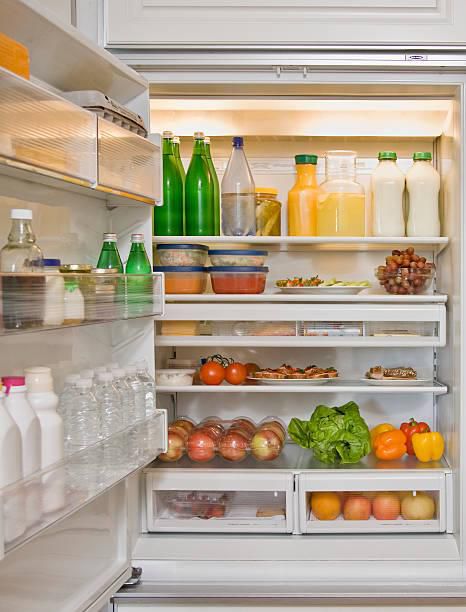Kitchen hacks: 7 tips to minimize food wastage and make the most of ingredients
)
Food waste is a global issue that impacts our wallets and strains the environment
Thankfully, we can take simple yet effective steps in our own kitchens to reduce food waste and make the most of our ingredients.
Plan meals and create shopping lists
One of the most effective ways to prevent food waste is through meal planning. Before heading to the grocery store, take some time to plan your meals for the week.
Consider your ingredients and make a shopping list based on what you need. Stick to the list to avoid impulse purchases and ensure that you only buy what you'll use.
Store food properly
Proper food storage is crucial for extending the shelf life of ingredients. Keep perishable items like fruits, vegetables, and dairy products in the refrigerator at the appropriate temperature.
Use airtight containers to store leftovers and use clear containers to easily see what's inside.
Label and date items to track freshness and prevent them from being forgotten and ultimately wasted.
Embrace batch cooking and freezing
Batch cooking is a great way to utilize ingredients efficiently and save time.
Prepare larger quantities of dishes and freeze individual portions for later consumption. , Legumes and indigenous vegetables are ideal for batch cooking and can be easily reheated for quick and delicious meals.

Get creative with leftovers
Instead of discarding leftovers, get creative and transform them into new dishes. Create a "left over meal" once or twice a week to clear out the fridge and prevent food from going to waste.
Preserve fruits and vegetables
When you have an abundance of ripe fruits or vegetables, consider preserving them for later use.
Make jams, pickles, or chutneys to enjoy the seasonal produce throughout the year. Additionally, you can freeze fruits to use in smoothies or desserts.
Be mindful of expiration dates
Understand the difference between 'sell by', 'use by,' and 'best by' dates on food packaging.
'Sell by' is for retailers, while 'use by' is a safety guideline. 'Best by' dates indicate optimal quality but don't necessarily mean the food is unsafe after that date.
Learn proper portioning
Serve appropriate portion sizes to prevent leftovers from being wasted. If you have leftovers intentionally, portion them out for future meals to avoid overeating or forgetting about them
)
)
)
![The health benefits of ginger and garlic are unbelievable [Food NDTV]](https://image.api.sportal365.com/process/smp-images-production/pulse.ng/01082024/200694f2-3977-47a4-a142-89c80fe6766e?operations=autocrop(236:157))
)
![10 countries where prostitution is legal. [Source - scoop]](https://image.api.sportal365.com/process/smp-images-production/pulse.ng/31072024/5eda0369-74f6-4a3b-82f7-d7dab249c8ac?operations=autocrop(236:157))
![Tribal marks of Nigerian people and what they mean. [guardian]](https://image.api.sportal365.com/process/smp-images-production/pulse.ng/01082024/45e8c254-ebf2-4262-b639-c83e8b56a32e?operations=autocrop(236:157))
)
)
)
)
)
)
)
)
)
)